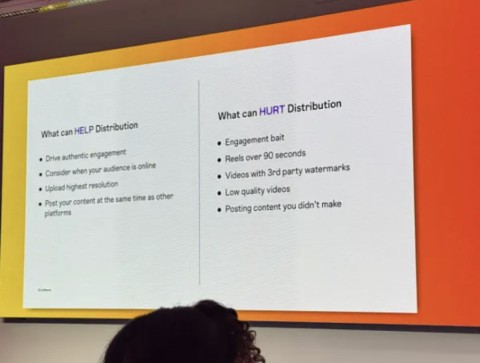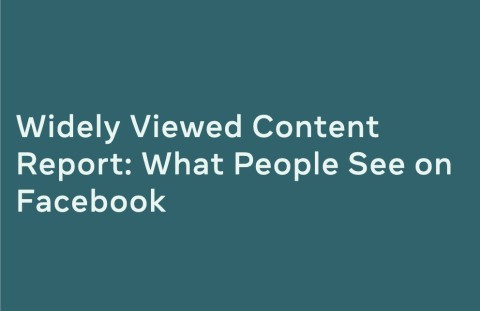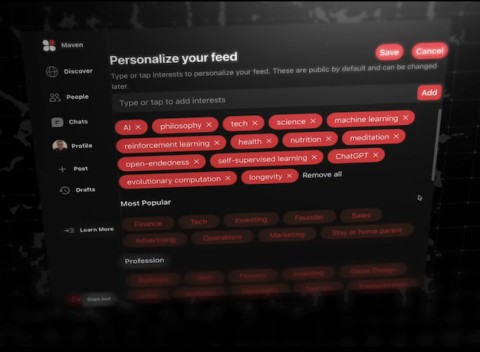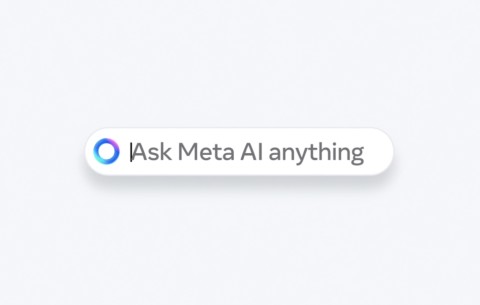Blog
Welcome to our blog! Stay up-to-date on the latest news, trends, and insights from our team!
Facebook vs. Apple – A quick explainer!
February 18, 2021
You may have heard a little bit about Apple’s new iPhone privacy setting that has worried the likes of Facebook and has some privacy advocates celebrating.
If the Facebook/Apple feud has only partially broken into your attention, this short explainer is for you!


What is changing?
Some of Apple’s privacy-related changes have been rolling out for months, such as requirements for apps to list the data collection activity within Apple’s App Store.
The most impactful change coming to iPhones has been called a tracking-optional operating system update. This one is called the App Tracking Transparency feature, or ATT. The stated goal is to provide clarity and options around how apps track your phone. It is the second part of that statement that has caused the storm: By making it easy for users to control (read: turn off) certain trackers, Apple is cutting off a major part of many companies’ data pipelines. The basic difference is that the model is moving from opt-out to opt-in; in other words, tracking will no longer be the default.
Facebook is perhaps the company with the most to lose when users opt-out of certain trackers, which many are likely to do.
The exact timing of this rollout is unknown, but it’s said to be coming in “early spring.” It was originally scheduled for the launch of iOS 14 in the fall of 2020 but was delayed to give app developers more time to adjust to the changes.
IDFA is the other acronym you might hear. This refers to Apple’s Identifier for Advertisers, which is sort of like a web browser cookie, allowing advertisers to track activity on your device. Some publications have explained the privacy changes as effectively killing the IDFA.
The context around the change
This update comes after years of privacy-related scandals (Cambridge Analytica is the most well-known). Against this backdrop, Apple has framed itself as champions of privacy (remember when they rejected the FBI’s attempt to get a “backdoor” into iPhones of criminals?). As explained by Recode, “Apple has made user privacy part of its business strategy.”
During that same time, Facebook has of course been a central player in most of those same privacy scandals and has built what you might call a different sort of reputation for itself. That said, Facebook has also built a huge advertising ecosystem that arguably improves the economy since many businesses rely on it for crucial marketing and income generation, from large-scale ad campaigns down to self-serve advertising from the smallest of businesses.
Facebook’s Response
Zuckerberg and team are not happy. One article in Inc. says Facebook fears the change “could result in a 50 percent drop in revenue for what is known as Audience Network.”
The PR response has been to reframe the change from being pro-privacy to being anti-small business. There were full-page ads in the big three newspapers declaring that Facebook was “standing up to Apple for small businesses,” and stating that non-personalized ads would generate 60% fewer sales.

Lawsuits are now also a likely next step, including an antitrust suit based on the App Store rules. The CEO was even reported to have said that Facebook needs “to inflict pain” on Apple.
Facebook has also made an effort to pre-empt some of the damage by implementing its own prompt ahead of time. This alert will encourage an early opt-in, giving Facebook a chance to frame the choice in more favorable terms:

Why it matters
These changes are sure to shake up the social advertising game. Even if Facebook’s efforts to roll it back are fully or partially successful, it’s likely if not assured that these changes will roll out in the meantime.
Given these facts, it’s important to take stock of the potential impact on your marketing efforts. If you have concerns about your ability to advertise effectively on Facebook, such as through advanced targeting, Pixel conversions, and other means of tracking, Facebook has set up a page with recommendations for businesses. Keep in mind that this has been a fluid process, so the best strategies may change over time.
Another important point: for users, the experience of using Facebook will ultimately not be all that different. There will still be ads, but they may not be based on as much intelligence about you (for better or worse). For some users, these changes may actually increase their usage of Facebook if they feel safer engaging on the platform than before. The tricky thing is, even if that happens, reaching them will become harder.
Related News
This month, we’ve also got you covered on these important social media news items:
Blog












What is Bluesky? The Twitter Alternative is Now Open to All
Here are a few more shareworthy items we’ve been reading…
Channel Updates & News:
Instagram says its algorithm won’t promote Reels that have a TikTok watermark (The Verge)
Facebook is building a Clubhouse clone (NY Times)
TikTok Adds New Recipe Integration (Social Media Today)
LinkedIn launches on-demand courses for advertisers (Search Engine Land)
YouTube is testing the ability to buy items from videos (Android Police)
New Pinterest “Interests” widget for iPhone home screen (Pinterest news)
Twitter branding update: “imperfect by design (Twitter blog)
Twitter introduces Birdwatch, a community-based approach to misinformation (Twitter blog)
Facebook reducing political content in News Feeds test (Social Media Today)
New pages for hashtags on YouTube (YouTube help)
Stories & Analysis
The end of escapist Instagram (glossy.co)
Looking for More Social Media Help?
The expert team at Dooley Social Studio helps brands get attention by being thoughtful about how they give it. Our goal is to make every social interaction with your company a remarkable one. Get in touch to find out how a partnership with Dooley Social Studio can grow your brand.
What's New?
We're always up to something exciting at Dooley Social Studio. Check back here regularly for our latest news, insights, and happenings. From industry trends to company updates, we've got plenty to share. Don't miss out on what's new in our world!

Watch the replay from our most recent webinar!
In this free webinar, Dooley Social Studio’s Trends and Culture Lead, Stephany Mendia, will unpack the biggest shifts in social we saw throughout 2025 - and break down what trends, behaviors, and creative strategies will matter most as we move into 2026.
Sign-up to our Newsletter
Formerly Dooley Media
2872 Wasson Road
Cincinnati, OH 45209
